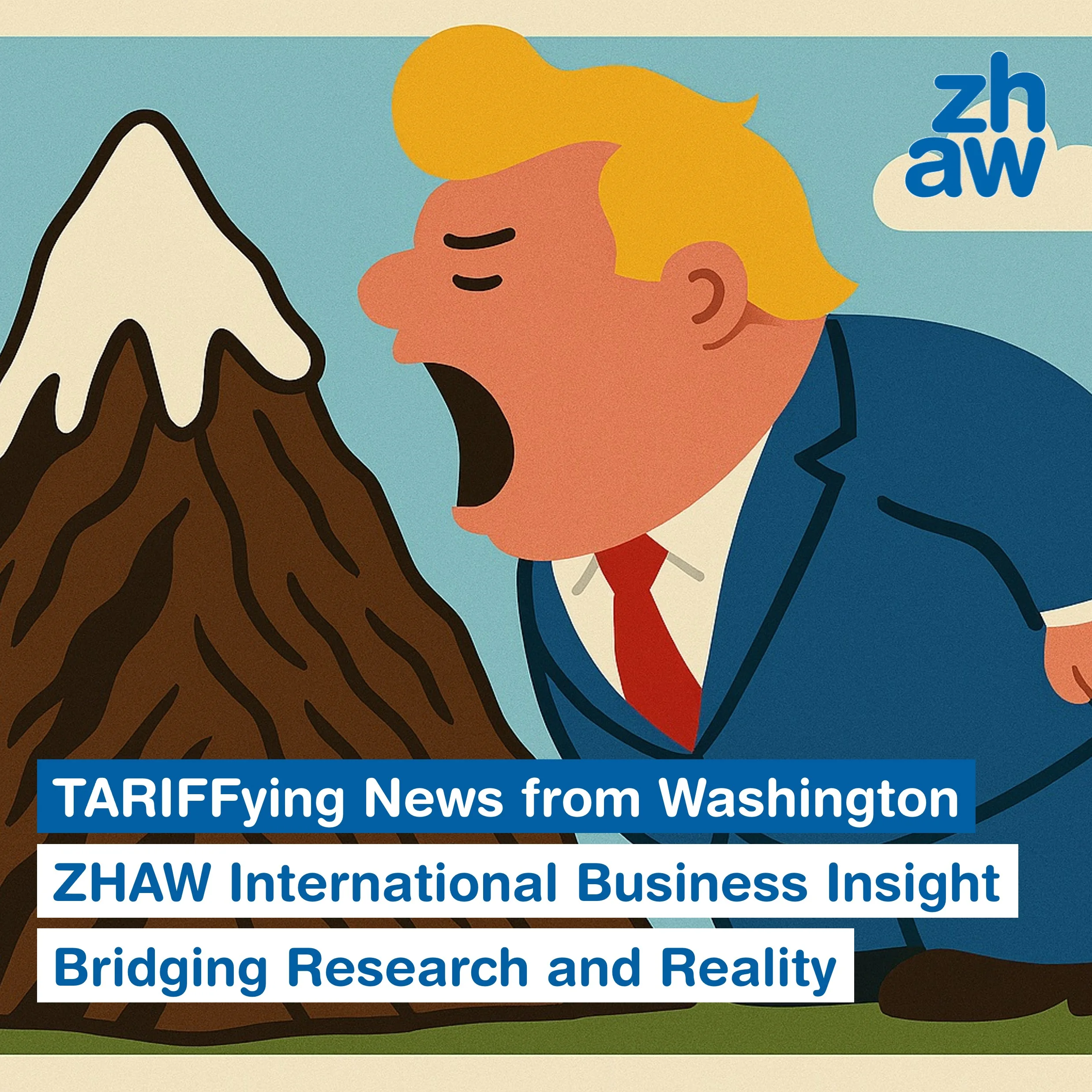ZHAW International Business Insight: TARRIFying News from Washington
A 39 percent tariff on Swiss goods: U.S. President Donald Trump’s early August decision has abruptly raised the temperature in Switzerland’s most important market outside Europe. Our science communication series ZHAW International Business Insight puts the decision in context with the Swiss Managers Survey 2025: According to the survey conducted by the ZHAW, the country’s business leaders had already braced for such a blow.

For Switzerland’s export-driven economy, the move strikes at the core of its business model. Federal President Karin Keller-Sutter urged calm – “Our economy has weathered many storms” – but industry groups warned of severe consequences. The tech sector, they said, now faces a virtually closed U.S. market, putting tens of thousands of jobs at risk.
Sentiment already sliding
Even before the tariffs, executives were worried. The Swiss Managers Survey (SMS) 2025, conducted in May by its Center for Geopolitics and Competitiveness and published in July under the title “TARIFFying”, reflects an economy adjusting to a world where trade is shaped as much by political power as by market forces.
Almost two-thirds of respondents now view the United States more negatively than they did two years ago; one in four described a “dramatic” loss of trust. Meanwhile, perceptions of the EU and Southeast Asia have improved significantly. China remains divisive, with opinion evenly split.
These shifts began before the tariff shock – and, the study notes, executive sentiment measurably influences investment and trade decisions.
Limited direct exposure, big indirect effects
Nearly 60 percent of surveyed firms don’t export to the U.S., and only a few generate more than half their foreign sales there. Still, 70 percent believe U.S. tariffs – along with the threat of them and wider geopolitical tensions – harm the Swiss economy overall.
Among exporters to the U.S., one in five had already reported falling sales earlier this year; only a handful saw gains. Nearly a quarter were actively scouting new markets outside America, a trend expected to accelerate.
Digital decoupling on the rise
The fallout is spreading beyond goods: one in four companies is considering reducing reliance on U.S. software and cloud providers. This could pull the conflict into the services sector, where the U.S. typically enjoys a clear trade surplus with Switzerland.
Business climate in retreat
The SMS Business Climate Index has tumbled from 78.9 points in 2022 to 56.3 in 2025 – driven largely by gloomier expectations. While 80 percent still rate their current situation as at least “satisfactory,” the share calling it “good” or “very good” is down sharply.
Industrial firms are more pessimistic than service providers: nearly 20 percent expect deterioration within six months, compared with one in seven in services.
Strong on quality, weak on costs
Swiss companies remain confident about their strengths in quality, innovation, and talent: 70 percent say their products outclass the competition, and 60 percent cite superior delivery reliability. But cost competitiveness remains a major weak point, and more firms now describe access to financing as critical.
Little appetite for counter-tariffs
Even before Trump’s announcement, most managers opposed retaliatory duties. Fifty-three percent were against the idea, 22 percent “strongly” so, fearing escalation, WTO disputes, and greater harm to exports overall. Only 29 percent supported countermeasures.
Looking ahead
The survey suggests Swiss business leaders were already mentally pivoting away from the U.S. before the new tariffs. Washington’s move will likely accelerate diversification – geographically, toward the EU and Southeast Asia, and technologically, away from U.S. digital infrastructure.
For now, Swiss companies are preparing to adapt, using what ZHAW calls the “storms” of global politics as a catalyst to reposition themselves in a shifting world market.